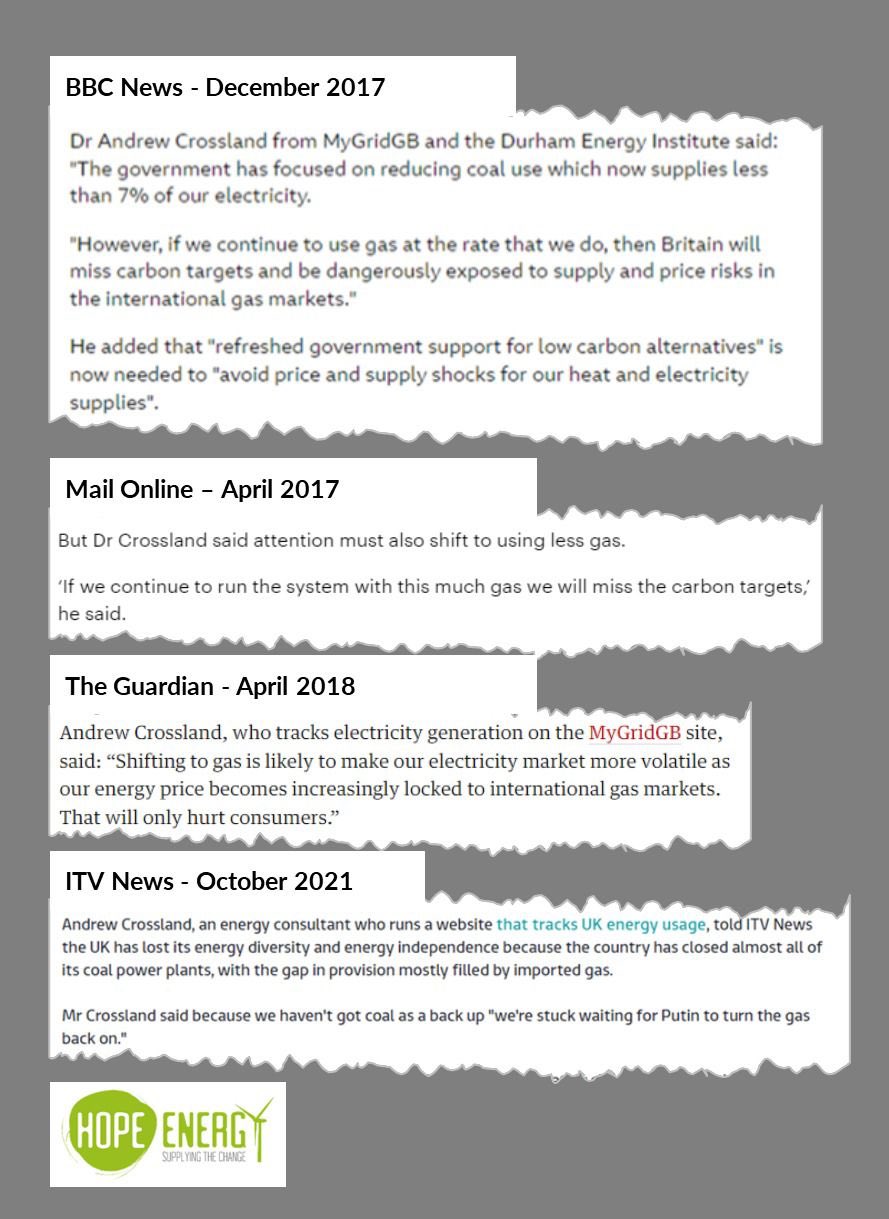Since September 2022, I have been campaigning to stop gas controlling the price of all of our electricity bills. Retrospective analysis shows that this would have reduced bills by £3bn from November 2022 to January 2023. In this blog, I will explain the idea more so you can share it and campaign for it yourself (or indeed have a good critique of it to come up with alternative ideas)
But before I do, I wouldd like to reflect on why energy matters so much. At least 50% of the people reading the blog might be inspired to make energy sustainable. But we must also remember that sustainability is about more than just net zero. It is also about affordability for all, reliability, availability, and supporting businesses that can thrive.
Net zero will take years to solve, but the need to make energy affordable cannot wait years, it needs to be addressed now. In normal times, fuel poverty kills 4,000 people each year in the UK (National Energy Action for 2021). Who dares imagine what that number might be this year as fuel bills extend beyond crisis levels?
Decoupling is my proposal to reduce the costs of electricity. Understanding it is easy, so let me explain. The crazy thing about electricity is that the cost of the most expensive power station running at any particular time sets the price paid to every single power station on the system. It’s a little bit unusual so I like to explain it by imagining going shopping.
If you head to your local supermarket and buy Apples for £2, Bananas for £1 and a bottle of wine for £9 then you should expect to pay £12 for your shopping. Well by the rules of the British electricity market, your shopping would cost £27 (because the price of your wine is applied to your bananas and apples). That may seem crazy and frankly it should. Explaining why it was designed this way is hard, but essentially it is a relic of rational thinking when the market used to work with mostly nuclear, coal and gas online.
Since Putin’s invasion of Ukraine, the price of gas has skyrocketed. But because of the way the electricity market works, the sky high price of gas is paid to all power stations in the wholesale electricity market. The electricity market is clearly broken. It is exasperating a price amplification which has made energy bills critical. It is disgusting. It needs to be stopped.
Aficionados reading this blog are right to point out that most wind and solar farms are on a fixed price contract so the price they get paid is unaffected by gas. That’s mostly true, but even if you account the wind and solar getting fixed price contracts, decoupling would have reduced bills by £3bn lower in the three months from November 2021 to January 2022.
I have not been campaigning on this issue on my own as I have teamed up with Barry James (Founder of Think Tank Humane Energy) who I met on a very out of the blue zoom call. We bounced off each other, developing our proposal to decouple the cost of low carbon energy from the price of gas. Barry is a tireless campaigner and managed to get me a speech on decoupling at the inaugural Westminster Forum on the Future of Energy on 26 January 2023. Others have also caught onto the idea and it is starting to enter mainstream media.
Barry and I have consulted widely on decoupling. A former director at Ofgem revealed it could be implemented almost immediately. It has also been adopted as interim policy by one of the UK’s mainstream political parties. This particular party also compared the saving from decoupling to the £1bn of estimated income to treasury from the Electricity Generator Levy (the present mechanism to address electricity prices). The Electricity Generator Levy puts the additional cost of electricity back into Treasury coffers. Decoupling immediately manifests £3bn into directly reducing bills for every single bill payer in Britain.
I’m also extremely grateful for Durham University and their Energy Institute for inviting me to speak on decoupling late last year – a recording of which is available here:
My plea to you all is that the country cannot wait any longer for a significant measure to reduce bills. With decoupling, we have a golden opportunity to provide that relief right now. We can sit and debate about how much impact it will have, but I assure you that it is a circular debate about whether CfDs impact my maths more or less than I’ve allowed or if the gas prices will recover – we all know that decoupling will reduce bills.
About Me:
I’m Andrew Crossland and I am a specialist in low carbon generation, storage and grids with a PhD in electricity engineering with finance from Durham University. I sit on the Advisory Board member of Durham University’s Energy Institute. Professionally, I’ve helped develop some really unique first of a type energy projects around the world, helped bring the UK a standard calculation for savings from solar and battery storage at home, lectured at a number of universities and published a book on the energy transition. I also predicted today’s energy crisis (something that I’m not so proud of).
You can connected with me on LinkedIn here: https://www.linkedin.com/in/afcrossland/
My book is available here: https://www.amazon.co.uk/Decarbonising-Electricity-Routledge-Explorations-Studies/dp/0367203324
My podcast with my great friend Dave is here: https://anchor.fm/renewableenergy
And below are some relevant media quotes:

